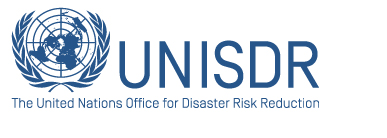The Caribbean region consists mainly of Small Island Developing States (SIDS) which face high levels of disaster risk and have comparatively low economic resilience. SIDS worldwide have a large proportion of their total produced capital at risk to earthquakes, weather related hazards and tsunamis. Due to its high exposure to natural hazards, the Caribbean has been working for a long time to building resilient communities.
A new feature of the CDM 2014-2024 is the development of a Strategy Implementation Plan 2014-2024, currently under development. The Plan will not only guide interventions in the region at the national, regional and sectoral level, but will be the foundation for guiding investment in an improved Monitoring and Evaluation System.
“The 2014-2024 Strategy along with its associated Implementation Plan will promote an integrated risk management approach to building resilience and safeguarding lives and livelihoods against multiple risk scenarios in the region for the period 2014-2024. It will also present a framework for dealing with emerging risks related to climate change”, said Ronald Jackson, Executive Director of CDEMA.
Margareta Wahlström, the Special Representative of the UN Secretary-General for Disaster Risk Reduction, and Head of the United Nations Office for Disaster Risk Reduction (UNISDR) highlighted during the launch of the CDM 2014-2024 strategy: “Business as usual does not work. We need to go beyond what we are doing now. The new CDM strategy will contribute to this effort.”
On the last meeting day a conference communiqué captioned “Promoting Resilient Development” was presented which includes key outcomes and the way forward associated with the CDM Implementation Plan.”The purpose of the communiqué is to call on all actors, primarily policy and political leaders to act on the major agreements made at the conference and also to further discussions commenced toward enabling actions. I feel confident in saying that this week has caused us all to have a renewed sense of resolve and commitment to address these issues to ensure the strengthening of the resilience of our states”, added Jackson.
The Caribbean region adopted already in 2001 a Strategy and Results Framework for Comprehensive Disaster Management (CDM) before the global DRR framework, the Hyogo Framework for Action, which was adopted by 168 States in 2005. The enhanced CDM strategy (2007-2012) included finding and priorities from regional and global frameworks.
Launched before the new global framework for DRR, the 2014-2024 CDM strategy will be a great contribution to the definition of the new global framework. This contribution was strengthened by a sub-regional HFA2 consultation which took place during the CDM8.
The CDEMA´s new Regional Strategy on Comprehensive Disaster Risk Management 2014-2024 was launched during the 8th Annual Caribbean Conference on Comprehensive Disaster Management (CDM 8) held at the Hilton Rose Hall, Montego Bay, Jamaica in the first week of December, 2013.
Related links:
Regional Strategy on Comprehensive Disaster Risk Management 2014-2024:
Communiqué “Promoting Resilient Development”
8th Annual Caribbean Conference on Comprehensive Disaster Management
Towards a post-2015 framework for Disaster Risk Reduction




